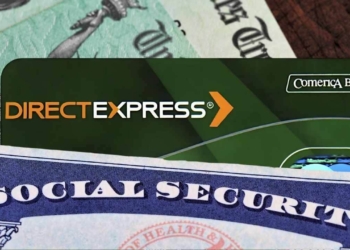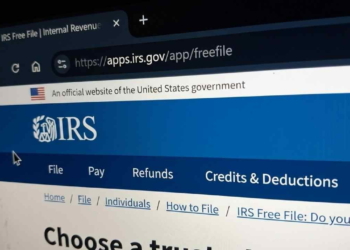The Social Security Administration issued the first SSI payment for January on December 31, 2024. Therefore, there was no payment on January 1. The first day of the month is usually the payday for Supplemental Security Income unless it falls on the weekend or on a Federal Holiday. Bear in mind that January 1 is New Year’s Day. That is why the change was necessary.
However, Social Security has scheduled another payment in January. On January 31, 2025, all SSI recipients will get their monthly payment. Do not forget that this will be the February payment because February 1 is Saturday and SSA offices and banks are not open at the weekend. In order to avoid delays, the money will be delivered on the previous business day.
SSI payment for March 2025
The Supplemental Security Income payment for March will be issued on February 28, 2025. Once more, the first day of the month falls on the weekend. That implies the first 3 payments in 2025 will have to face minor changes.
Finally, the April payment for SSI will be due on the first day of the month. Hence, April 1 will be your payday if you are eligible for Supplemental Security Income.
Remember that having a low income, little to no resources and either being blind, having a disability, or being 65 years old at least are essential conditions. May 1 will also be the normal payday for SSI. Nevertheless, the payment for June will be delivered to recipients’ bank accounts on May 30, 2025.
SSI payment schedule from July through December
July 1, and August 1, 2025, will be the paydays for the Supplemental Security Income program too. The September payment will be issued on August 29, that is 3 days ahead of schedule.
This will happen because there is a Federal Holiday on September 1 (Labor Day) and the weekend. SSI payments cannot be sent on any of these days, so they must be sent 72 hours in advance.
October 1 and December 1 will be the paydays for SSI. However, the check or direct deposit for November will be delivered on October 31, 2025. Not surprisingly, even December 31 will bring a new payment for Supplemental Security Income, but it will be the January 2026 payment in advance.
What resources or income are considered when determining SSI eligibility?
Below is a general overview of which income and resources the Social Security Administration (SSA) considers when determining eligibility for Supplemental Security Income (SSI). Keep in mind that SSI rules can be complex, so for specific questions about your situation, consult the SSA or an attorney familiar with SSI regulations.
Income Considered for SSI
Earned Income
- Wages from employment – This includes salaries, tips, commissions, and other forms of compensation for work performed.
- Net earnings from self-employment – Income from freelancing, contract work, or operating a business (after expenses).
- Certain royalties or honoraria – Payments for intellectual property or speaking fees.
- Work-related benefits – Severance, vacation pay, etc., in the month received.
Unearned Income
- Social Security benefits (e.g., retirement, survivors, or disability) – Any Social Security payments you receive other than SSI.
- Pensions or annuities – Retirement payments from an employer, a private pension, or retirement account distributions.
- Alimony and child support – In most cases, these payments are counted as income.
- Unemployment and workers’ compensation – Any payments received from these sources.
- Cash assistance – From other government programs or private charities.
- Interest, dividends, or rents – Proceeds from bank accounts, investments, or rental property.
Resources Considered for SSI
The SSA has a limit on countable resources (e.g., total value of cash, bank accounts, real estate, etc.). For an individual, the resource limit is typically $2,000; for a couple, $3,000. Exceeding these limits typically disqualifies a person from SSI unless certain exclusions apply.







